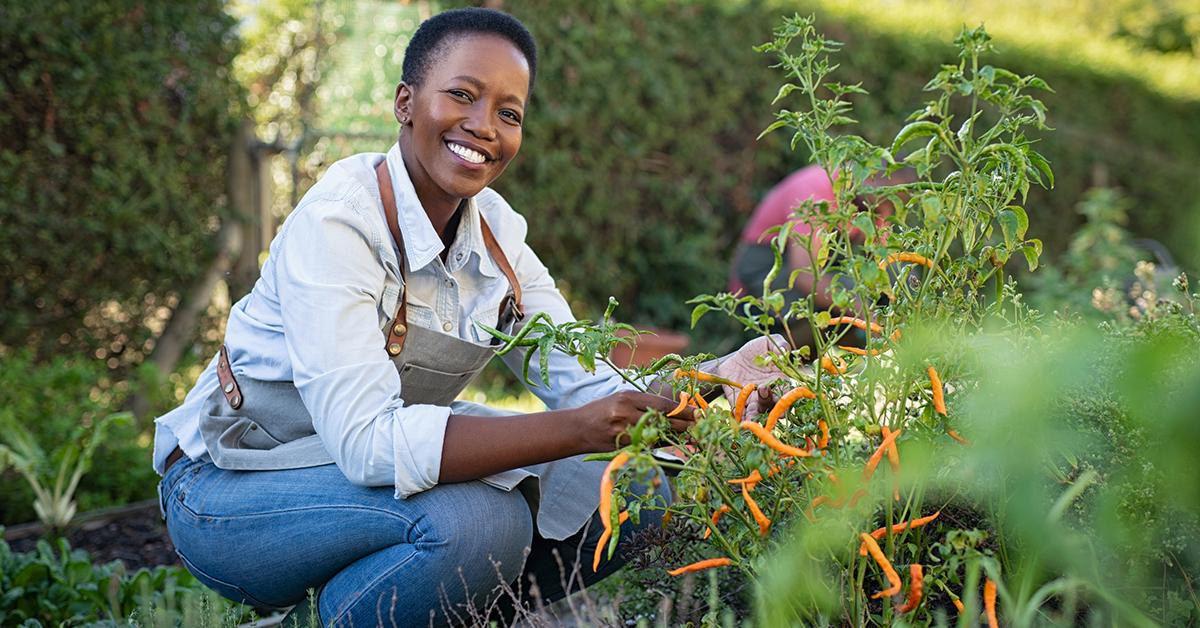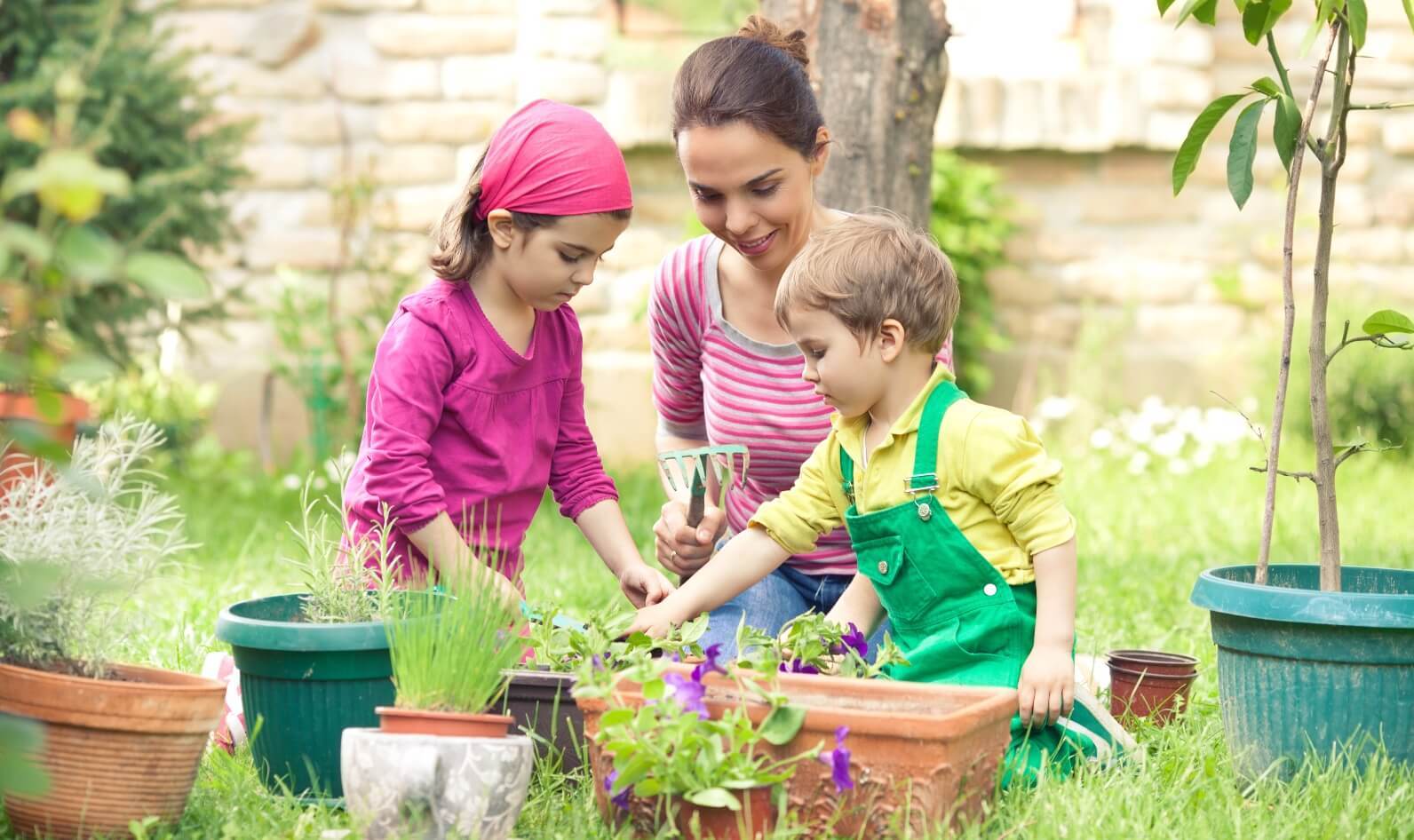How Gardening Can Improve Your Health and Wellbeing
How Gardening Can Improve Your Health and Wellbeing
Blog Article
Comprehending the Different Kinds of Horticulture and Just How They Contribute to a Much Healthier Lifestyle and Setting

Advantages of Vegetable Gardening
Lots of people are progressively identifying the myriad benefits of veggie gardening as a crucial component of a healthier lifestyle. Participating in veggie horticulture supplies many physical health and wellness benefits, consisting of boosted physical task, which enhances cardiovascular health and promotes general fitness. The act of planting, weeding, and harvesting requires motion and can aid battle sedentary habits, adding to weight management and enhanced muscle tone.
Furthermore, cultivating one's very own veggies dramatically improves dietary high quality. Homemade produce is frequently fresher and a lot more nutrient-dense contrasted to store-bought options, as it can be consumed soon after harvest. This ease of access urges a greater consumption of vegetables and fruits, which are necessary for avoiding chronic illness.
In addition, veggie gardening cultivates mental wellness by giving a healing electrical outlet for tension relief and leisure. Jointly, these benefits underscore the significance of vegetable gardening as a keystone of a much healthier way of living.
Discovering Blossom Horticulture

In enhancement to aesthetic advantages, flower horticulture supports neighborhood ecological communities. Lots of flowering plants bring in pollinators, such as and butterflies, which are crucial for maintaining biodiversity. The visibility of varied plants can additionally boost soil health, as different plants add to nutrient cycling and boost soil framework.
In addition, flowers can play a considerable role in promoting lasting practices. Lots of gardeners opt for native or drought-resistant varieties, which call for less water and very little chemical inputs. This approach not just profits the setting yet additionally urges liable horticulture behaviors.
Ultimately, flower gardening works as an important element of an alternative gardening approach. Gardening. By cultivating beauty and supporting local environments, it integrates with veggie horticulture and highlights the significance of nurturing both our physical and mental well-being through nature
Container Gardening Benefits
Container gardening deals many advantages that make it an attractive choice for both beginner and knowledgeable garden enthusiasts. Among the key benefits is its flexibility; containers can be positioned on outdoor patios, verandas, or perhaps inside, allowing for horticulture in rooms with minimal ground accessibility. This flexibility makes it possible for people in city environments or those with tiny backyards to grow plants effectively.
Additionally, container gardening provides improved control over soil top quality and dampness degrees. Gardeners can pick details dirt blends to optimize plant health and mitigate concerns like weeds and pests. The mobility of containers likewise enables easy relocation to take full advantage of sunshine direct exposure or safeguard plants from inclement climate.
Moreover, container gardens can be cosmetically pleasing, using a chance for imagination in design. Gardening. They can work as decorative elements that enhance outdoor or interior spaces while advertising biodiversity by attracting pollinators
Lastly, container gardening can add to a healthier way of living by motivating exercise, as it often entails lifting, growing, and maintaining plants. On the whole, the benefits of container horticulture make it an available and satisfying technique for those looking for to improve their way of life and setting.
The Rise of Vertical Gardening
As metropolitan areas come to be significantly crowded, the pattern of vertical gardening has taken off, enabling people to optimize their horticulture possibility in minimal areas. This innovative technique entails expanding plants in vertical frameworks, such as wall-mounted planters, trellises, or specialized upright garden systems. The charm of vertical horticulture lies not only in its reliable use area but also in its visual contribution to urban atmospheres, changing bare walls into lavish eco-friendly landscapes.
Upright gardens can be mounted in homes, verandas, and neighborhood spaces, supplying a platform for growing a variety of plants, including natural herbs, veggies, and decorative flowers. This method encourages biodiversity and can enhance air quality by filtering toxins while advertising a link to nature in densely inhabited areas. Additionally, upright horticulture uses functional benefits, such as improved yield per square foot, making it an attractive option for urban garden enthusiasts looking for to expand their very own food.

Sustainable Practices in Gardening
Welcoming sustainable techniques in horticulture is necessary for promoting ecological wellness and making sure the feasibility of our natural sources. Lasting horticulture strategies focus on decreasing environmental effect, saving water, and fostering biodiversity. By executing methods such as organic gardening, gardeners can reduce the use of synthetic fertilizers and chemicals, which can damage neighborhood communities.
Companion planting is see it here another effective sustainable method, where particular view it now plants are expanded with each other to improve development and hinder bugs normally. Furthermore, using indigenous plants in landscape design supports regional wild animals and calls for less upkeep, as they are naturally adapted to the neighborhood climate and dirt problems.
Water conservation techniques, such as rainwater harvesting and drip watering, assistance to efficiently take care of water resources, hence lowering waste. Composting natural waste not only improves the dirt yet also decreases garbage dump contributions, advertising a circular economic climate.
Finally, practicing crop turning and cover cropping enhances dirt health and wellness and lowers the risk of parasite invasions. By incorporating these sustainable techniques, gardeners can create resistant ecological communities that add to a much healthier lifestyle while protecting the environment for future generations.
Conclusion

In final thought, the varied techniques of horticulture, consisting of vegetable, blossom, container, and upright gardening, collectively advertise a healthier way of living and improve ecological sustainability. Each type supplies distinctive benefits, from giving fresh fruit and vegetables and Recommended Reading bring in pollinators to optimizing minimal rooms and motivating biodiversity. By cultivating sustainable practices, these gardening comes close to not only contribute to private well-being but also support wider eco-friendly conservation initiatives, ultimately minimizing dependence on industrial farming and boosting area resilience.
Report this page